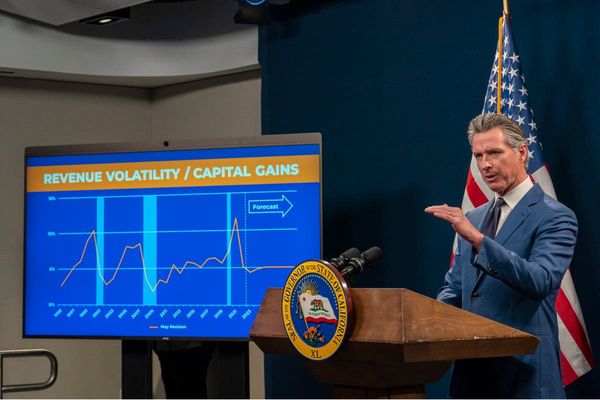
The Federal Reserve began their meeting today, and another rate hike of 25 basis points is anticipated. This would be the eleventh rate hike in almost 18 months, bringing the Fed's benchmark rate to between 5.25% and 5.5%. That range would mark a 22-year high for the United States.
The hike would come just as recent data from S&P Global Flash US Composite PMI showed the U.S. economy growing at a slower rate in the third quarter relative to the April-June period. Gross domestic product (GDP) grew 2% year-over-year in the second quarter, compared to 1.5% at the start of the third quarter.
Yet slower economic growth could be good news, showing that inflation is getting under control. And it's causing some economists to believe that not only will housing prices not collapse, as some of the more dire predictions have suggested - but Americans may have already experienced the worst of it.
Understanding the link between inflation, interest rates, and the housing market
To understand where home prices have been and where they might be headed next, it's first important to understand the relationship between inflation, interest rates, and the housing market.
When inflation is high, discretionary expenses increase for most households, leading to less spending money in the pockets of potential homebuyers. With less cash on hand and other budget items on the rise, fewer Americans may be able to purchase new homes. This dynamic typically results in lower housing demand and lower prices.
Right now, Americans are experiencing persistently high inflation. While June's annualized consumer price index (CPI) reading of 3.0% was the lowest since August 2021, it's still considerably higher than the 0.6% reading clocked just three calendar years ago - and north of the Fed's own informal target of 2.0%.
Interest rates are important too, as they impact the cost of borrowing. When interest rates rise, it's more expensive to take on a mortgage - so a higher interest rate environment can also lead to lower housing prices, as potential buyers may opt to wait for more favorable rates. (If you're an American who managed to get a fixed mortgage before the last 18 months of increases, count yourself lucky.)
So, when inflation and interest rates are both elevated, as they are now, demand for houses typically slows down, and housing prices fall.
But the housing market in America is a complex one, and we can't overlook the basic principles of supply and demand. There is currently still more demand than there is supply - so while sales have declined, prices have remained fairly high.
Where the housing market stands today
While some headlines have raised the alarm for an imminent real estate crash, the U.S. housing market may have already experienced a correction of sorts.
When the pandemic hit, housing prices ramped higher as Americans were forced to rediscover the stay-at-home lifestyle. Prospective homebuyers were met with accommodative fiscal and monetary policy - including low interest rates, the extension of unemployment benefits, and federal stimulus payments - and demand surged.
However, supply couldn't keep up with demand, due in part to pandemic-related constraints in supply chains. Before the pandemic, there was already a lack of housing, and the already-low supply dwindled even further as construction of new homes stalled.
Eventually, demand for homes cooled as pandemic restrictions ended and interest rates rose. However, supply is still lacking today, with the number of unsold homes at 1.08 million by the end of June, compared to 1.92 million back in 2019, according to the National Association of Realtors (NAR). Sales are now down 18.9% compared to just one year ago. That said, sales still remain elevated on a historical basis.
The median sales price for June of $410,200 was the second-highest price ever recorded, according to NAR. This was down just 0.9% from the same time last year, at $413,800, but still an important milestone. So, are Americans due for a deeper correction in home prices, or is the market only going up from here?
Where home prices are headed next
In the near-term, housing prices will be affected by mortgage rates, new supply, and the economy.
After tomorrow's expected raise, the Fed will likely pause in its rate hikes. The National Housing & Economic Forecast 2023 Mid-year Update by NAR stated that it appears the end is near for the tightening on inflation by the Federal Reserve. If that's the case, that means that mortgage rates shouldn't continue to rise significantly. However, with the Fed has said that it's likely that inflation won't reach it's 2% inflation target until 2025. So, even if the Fed stops raising rates, it's likely that they won't be reducing them anytime soon (unless the economy falls into a recession). Currently the average interest rate for a 30-year fixed mortgage is 7.23%, which is a 20+ year high. This should continue to put some downward pressure on housing prices.
Concerning supply, according to the United States Census Bureau, there were 1.434 million new homes constructed in the United States in June 2023. This is down from 8% in May 2023, and 8.1% from June 2022. However, the Census Bureau also noted that there were 1.44 million new home building permits, which was a quarterly increase from the 1.39 million homes under construction during the first quarter. It was also the first quarterly increase of new homes under construction since June of last year. Granted, the increases here are modest. But these are positive signs nonetheless, and could lead to growth in newly built homes in the third quarter as well. More supply could continue to push housing prices lower.
However, the strength in the economy could prevent home prices from dropping significantly. The job market remains robust and wages remain strong. If employment continues to show strength, this could buoy housing prices. And the stock market has been defying expectations and continues to rally. This also could prevent housing prices from retreating substantially.
Overall, most experts believe that home prices will not see much of decline in the second half of this year. Nadia Evangelou, senior economist and director of real estate research for NAR said, “Home prices won't drop in 2023. I expect pricing to be relatively flat.” And economists surveyed by Zillow expect prices to slide by only 1.6% in 2023, followed up moderate price increases in the next four years.
So, minus an unforeseen economic event, it seems as if we won't see a meaningful drop in home prices anytime soon.
On the date of publication, Amy Legate-Wolfe did not have (either directly or indirectly) positions in any of the securities mentioned in this article. All information and data in this article is solely for informational purposes. For more information please view the Barchart Disclosure Policy here.






